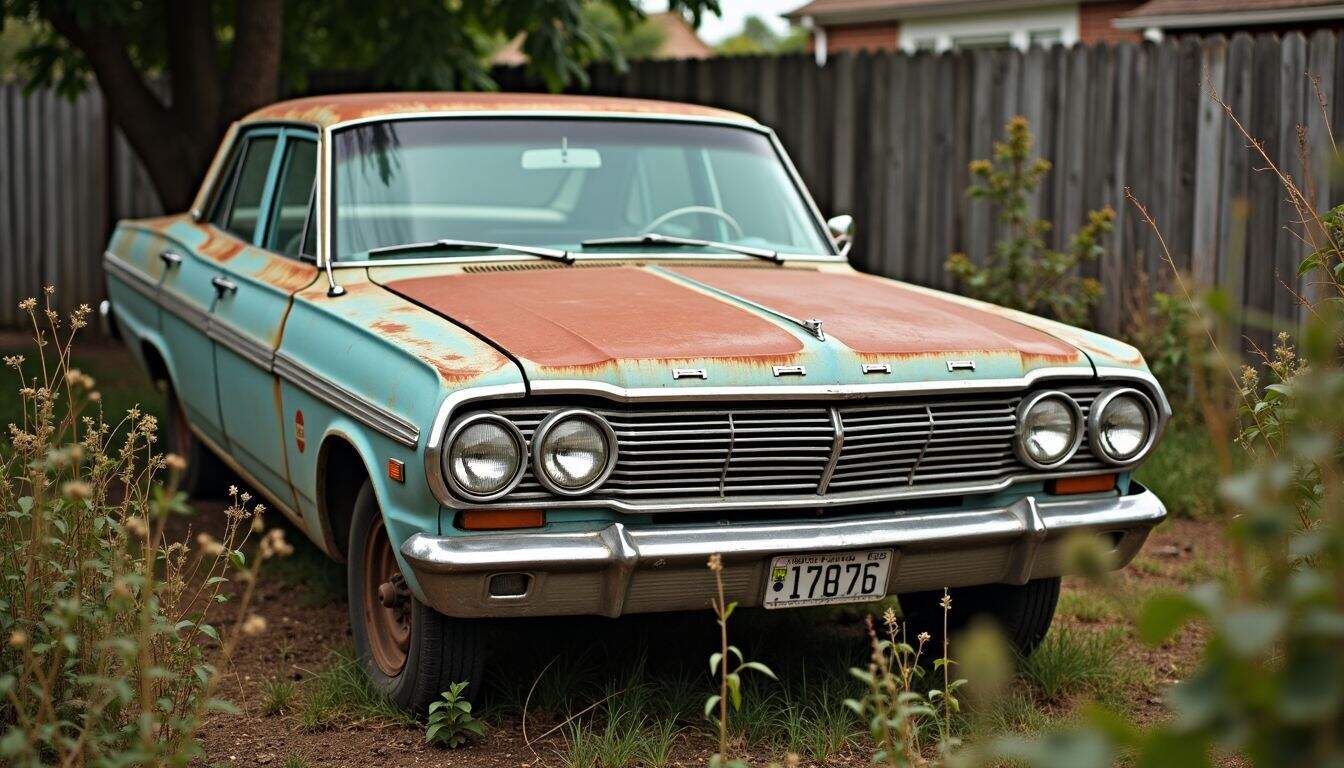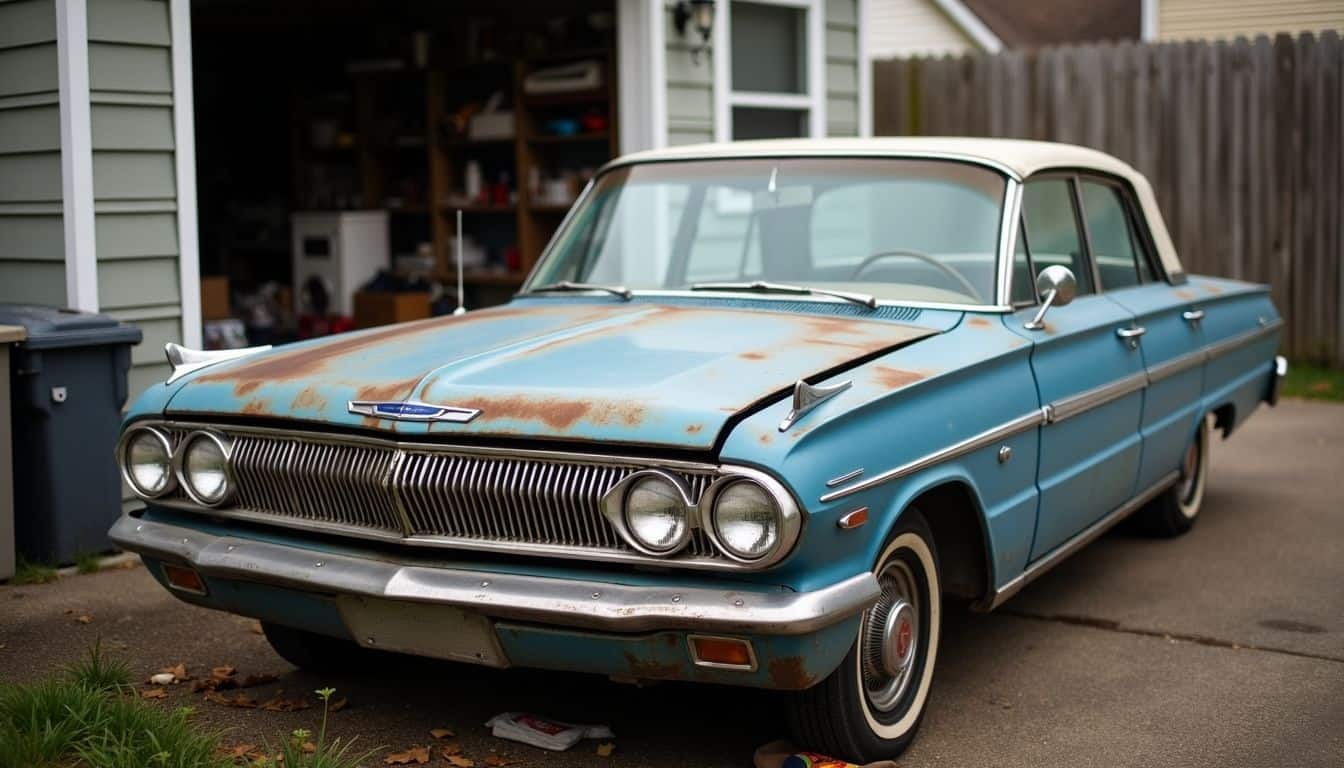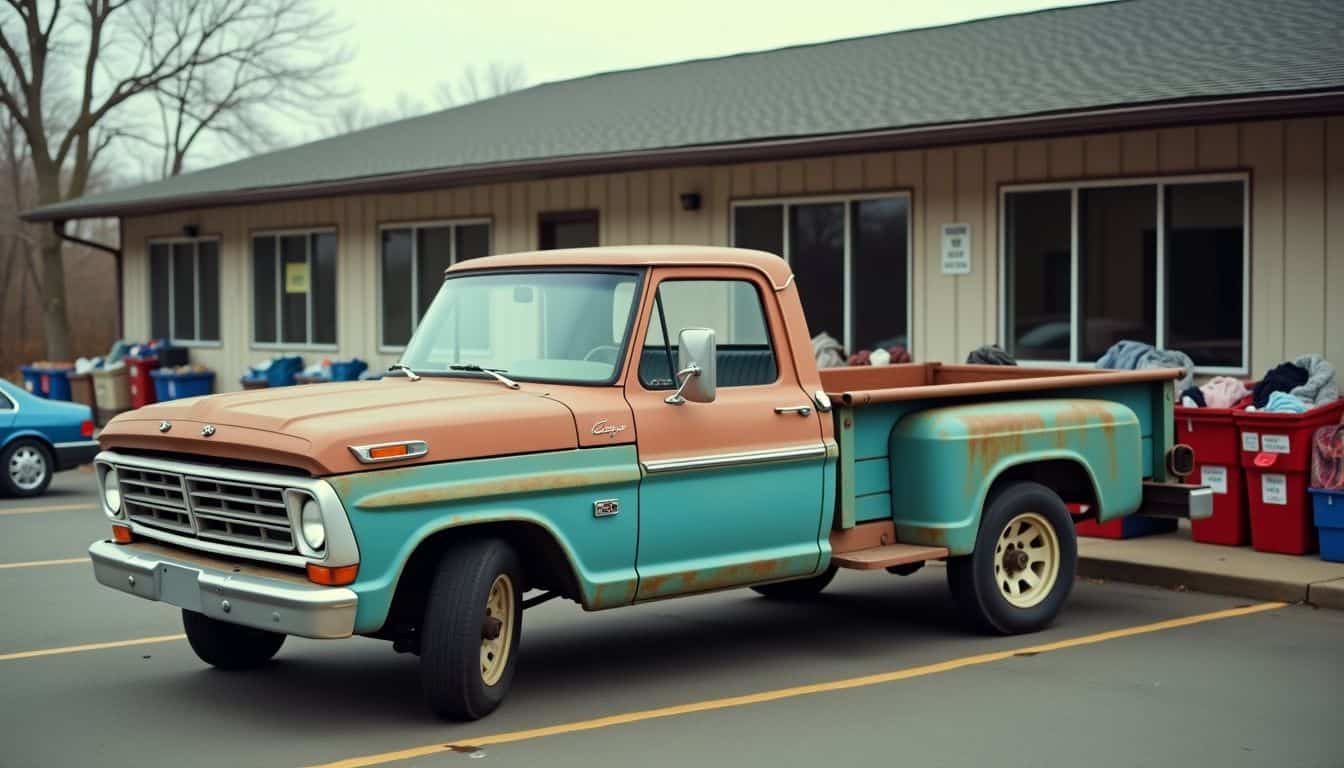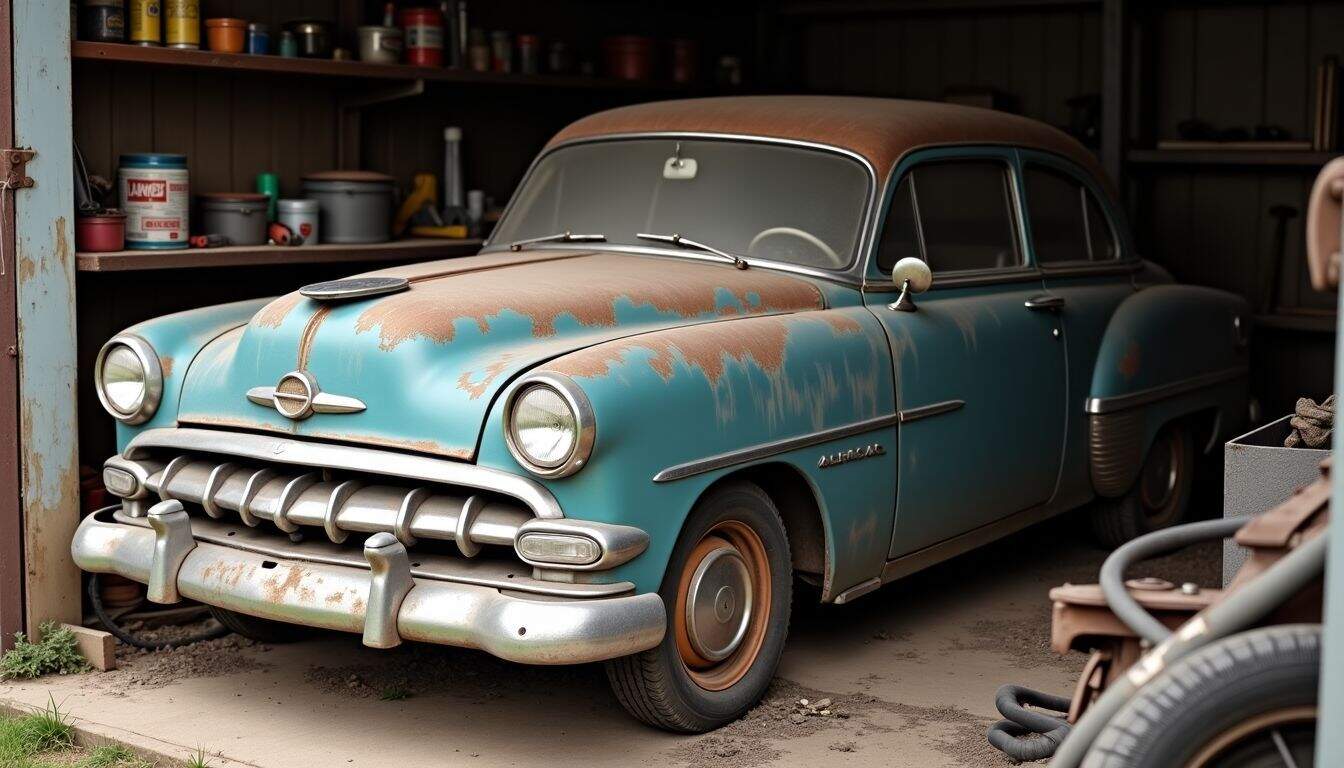Got a junk car taking up space in your garage or driveway and not sure what to do with it? Every year, countless taxpayers grapple with the same dilemma: Is it better to sell or donate a junk car? In this post, you’ll learn five clever clues for 2025 about how selling or donating can affect your income, taxes, and financial aims.
Read on—you might save money and hassle along the way!
Key Takeaways
Selling your old car gets you quick cash, usually around $200-$500—but donating could earn you a bigger tax deduction later on.
Many charities take cars that don’t run and will even tow them away for free, saving you money on removal costs.
Your car’s condition really matters; if it’s badly damaged, selling it means getting very little cash, but charities accept vehicles in any shape.
By 2025, you’ll likely see more online car auctions and easy-to-use apps where you upload photos and quickly get multiple offers from buyers.
For taxes filed in 2025, single taxpayers have a standard deduction of $12,550, while married couples filing together can deduct as much as $25,100.
Table of Contents
Pros and Cons of Selling a Junk Car

Selling a junk car puts cash in your pocket fast, but finding the right buyer takes work. You’ll need to weigh scrap metal prices against the time spent calling junkyards and haggling with dealers.
Immediate cash benefit
 Quick cash tops the list of reasons to sell your junk car instead of donating it. Many junk car buyers pay around $200 to $500 instantly for your old ride.
Quick cash tops the list of reasons to sell your junk car instead of donating it. Many junk car buyers pay around $200 to $500 instantly for your old ride.
You pocket the money now, rather than waiting months until tax season. Fast cash helps out when bills pile up, repairs are needed, or there’s new fishing gear calling your name. Scrap yards and junkyards compete to buy your car, boosting your chances for a higher payout.
Cash today beats tax deductions tomorrow when your wallet needs immediate relief.
Selling privately could earn you extra bucks, if you’re willing to wait for the right buyer. Your old Toyota—or any used car—might attract folks hunting specific replacement parts.
Scrap metal prices shift frequently, and timing your sale just right can mean extra dollars. Forget worrying over donation forms and figuring out fair market values—grab the cash, and you’re done.
Requires effort to find a buyer or junkyard

Selling a junk car can take more effort and time than you’re prepared for. You’ll likely spend hours calling several junkyards, explaining again and again what’s wrong with your car, and waiting on hold.
Each junkyard has its own rules—some refuse cars with missing pieces or a faulty transmission. Trying to sell privately can turn into weeks or even months of frustration, sitting tight until the ideal buyer finally comes along.
Once you find an interested buyer, negotiations can get tense. Expect buyers to haggle relentlessly, pushing your price down repeatedly. Dealerships tend to offer very low prices because they know you’re eager to quickly unload the car.
You’ll also have paperwork to handle, towing arrangements if your car doesn’t start, and maybe some minor repairs just to finalize the sale. With all this hassle, many folks start considering a simpler alternative—donating the vehicle.
Giving your car to charity can save you stress and might provide useful tax deductions too.
Pros and Cons of Donating a Junk Car

Donating your old car can score you a nice tax break while helping a worthy cause. Yet, some charities won’t take cars that don’t run, and you’ll need to handle more paperwork than with a quick sale.
Tax deduction opportunities

Tax credits can give car donations a fresh appeal. The IRS lets you deduct the value of cars you give to registered 501(c)(3) charities. Last year, I gave my old truck away—and saved hundreds on taxes.
Your deduction amount will depend on income and your filing status. Single taxpayers qualify for a standard deduction of $12,550, and married couples filing together can deduct up to $25,100.
If a charity sells your car for under $500, you get a deduction of either the sales price or the fair market value—whichever is less.
A smart tax strategy turns your junk car into a gift that gives back twice—to the charity and to your bottom line.
Plenty of non-profits handle all the paperwork, even providing clear receipts to simplify your tax filing. The donation process ends up pretty easy. In fact, your tax savings might beat any cash you’d see from auctioning off an aging car.
Just be sure to keep careful records and maintain your paperwork. Picking the best charity could shrink your tax bill—and still help someone else out along the way.
Limited options for non-working cars

Giving away a car that no longer runs has some clear downsides. Sure, most charities happily take broken-down vehicles, but these often wind up sold for spare parts or junked altogether.
If your car won’t even start, expect its value to drop significantly. Cars over ten years old make up the bulk of donations—and plenty don’t run at all. Charities still welcome them, though, usually offering free towing, saving you the hassle and cost of junk removal fees.
Selling your dead vehicle privately or through an auction won’t likely bring in much cash. Donating your old clunker often proves simpler than trying a private sale, but don’t count on huge tax deductions.
The IRS bases your tax write-off on what the charity actually receives from selling it—not what you feel it’s worth. Your paperwork needs to clearly match the charity’s selling price.
Non-working vehicles typically earn far less for charitable purposes than their functional counterparts—so keep expectations realistic.
Factors to Consider When Deciding

Several key factors can guide your choice between selling and donating that old car sitting in your driveway. Your decision should match both your current money needs and your desire to help others through charitable giving.
Condition of the car

Your car’s condition makes a huge difference in deciding whether to sell or donate. Vehicles with major damage or that won’t even start often bring very low prices at auctions. I experienced this myself—my old sedan, with a ruined transmission, got offers below $200.
Most buyers look for cars that they can fix cheaply and resell quickly. Charities are less picky, though; they’ll usually accept vehicles in any shape. They can either use spare parts or sell the whole car for scrap metal.
KBB.com valuations can drop quickly if your vehicle has specific issues. Problems like broken air conditioning, dented body panels, or hybrid batteries at their end-of-life stage can seriously reduce resale value.
Insurance companies also recognize these defects and typically offer reduced payouts for damaged cars. If repairs seem expensive, the tax savings from donation could exceed what you’d earn through a sale.
Many charities even take cars without a title—making donation a smoother, simpler route for tricky vehicles.
Your financial goals

Money plays a big role when deciding whether to sell or donate a junk car. Selling privately usually puts more cash in your pocket than trading in an old clunker. Extra cash can ease immediate bills or boost savings quickly.
On the other hand, donations can offer significant tax advantages. Many car owners overlook that detail—donation receipts often yield tax deductions worth more than offers from junkyards.
Market trends also influence this choice. Scrap metal prices constantly shift, directly affecting junkyard payouts. Certain hybrid vehicles include parts that sell well at auctions, bringing in better returns.
So, weigh immediate money needs against possible tax perks next spring. Wise owners align car disposal plans with both current financial needs and future money goals.
How Will Junk Car Disposal Options Evolve in 2025?

By 2025, your options for junk cars will look very different. Car auctions will mainly shift online, letting you easily sell your old vehicle from home. Donating cars will also become quicker—with digital papers and rapid processing for tax deductions.
Many charities will even accept hybrid or electric vehicles, like Tesla’s Model S and Model X, using them for valuable spare parts.
Mobile apps will become common too. You’ll quickly snap a picture of your junk car, upload it, and receive instant offers from multiple buyers. No more driving around town, hunting junkyards for the best deals—saving you tons of time.
Digital platforms will even let you follow your car donation step by step, from pickup to how your charity actually uses it. You’ll see exactly who your vehicle helps out. Insurance providers may jump in too, offering perks and bonuses for eco-friendly car recycling.
The used car part market will keep growing, as more drivers look for cheaper ways to handle repairs. If you’re trying to sell a damaged car, specialized buyers will increasingly offer fair cash deals, no matter how rough the shape.
These advances will make unloading old cars quicker, easier, and far more enjoyable.
People Also Ask
What tax benefits can I get from vehicle donation?
Donating your car to charity can qualify you for a tax deduction. The deduction amount varies, depending on how the charity utilizes your donated vehicle. Usually, you can deduct the car’s fair market value, possibly saving you more than a cash sale of a junk car.
How does the car donation process work?
Donating your car is straightforward and hassle-free. First, choose a charity that takes vehicle donations. Next, fill out the donation paperwork and transfer the title to the charity. Many charities offer free pickup services, making the donation even easier, then they’ll provide you with a receipt to use at tax time.
Do I need to keep my car insurance during the donation process?
Keep your car insured until you’ve transferred the title officially. After ownership shifts to the charity, call your insurance company and cancel your policy. Doing this prevents coverage gaps that could cause headaches down the road.
Are hybrids worth more when donating versus selling?
Selling hybrids might get a higher price, thanks to valuable parts and efficient gas mileage. Still, donating a hybrid vehicle could offer greater tax savings compared to a direct sale. It’s smart to compare estimates for donating and selling—then decide the option offering you the greatest return.
References
- https://www.pullapart.com/junk-my-car/car-sales-tips/should-i-donate-or-sell-my-junk-car/
- https://www.progressive.com/answers/donating-vs-selling-car/
- https://carshelpingcharities.org/donate-my-car-or-sell-it-to-a-junk-yard-which-is-better/
- https://www.vehiclesforveterans.org/why-donate-your-scrap-or-junk-car/
- https://www.rawhide.org/blog/car-donation/is-it-better-to-donate-or-sell-your-used-car/ (2019-03-15)

